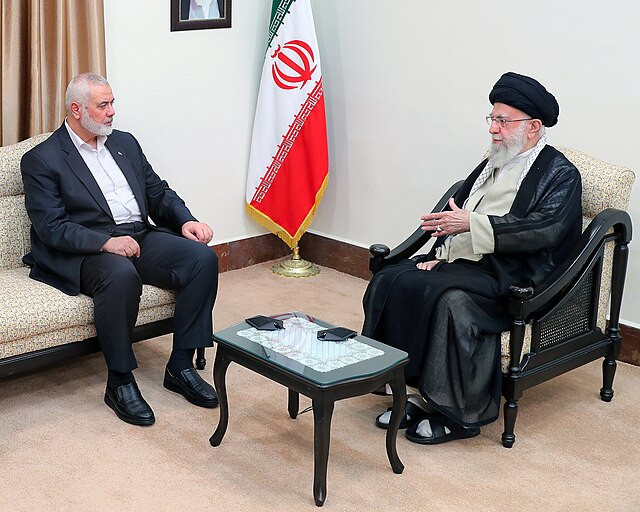Hamas leader Ismail Haniyeh was killed in Tehran by a short-range projectile, the Iranian Revolutionary Guards announced on Saturday. The assassination has triggered a wide-reaching security response in Iran, with authorities arresting more than two dozen individuals, including senior intelligence officers and military officials, in a frantic search for the perpetrators.
The Revolutionary Guards detailed that the projectile had a warhead of about 7 kg. They blamed Israel for the attack, referring to the "terrorist Zionist regime" and vowing "severe revenge." Haniyeh was targeted in a northern suburb of Tehran shortly after attending the inauguration of Iran's new president.
"The fervor of the response to the killing of Haniyeh underscores what a devastating security failure this was for Iran's leadership," the New York Times reported. The assassination took place within hours of the new president's swearing-in ceremony, at a heavily guarded compound, which should have been secure from such attacks.
Iranian media have reported that Haniyeh's burial took place on Friday in Qatar, where he had been based. The Iranian government has not only accused Israel but also implicated the United States in supporting the attack, highlighting the complexity of the geopolitical tensions in the region.
In response to the assassination, the Revolutionary Guards' specialized intelligence unit for espionage has taken over the investigation. Two Iranian officials familiar with the probe, who requested anonymity due to the sensitive nature of the investigations, revealed that the scope of the arrests includes senior military and intelligence figures, as well as staff workers at the guesthouse where Haniyeh was staying.
Security agents have quarantined the guesthouse's staff, arrested some, and confiscated all electronic devices, including personal phones. This extensive security operation also involves combing through surveillance footage dating back months and examining the guest lists to identify any possible links to the assassination team.
The Revolutionary Guards stated that "the scope and details of this incident are under investigation and will be announced in due course." The investigation also extends to Tehran's international and domestic airports, where agents are scrutinizing footage and flight lists to track the movements of potential suspects.
Britain's The Telegraph reported that Israel's intelligence agency, Mossad, was behind the assassination, having hired Iranian security agents to plant explosives in three separate rooms of the guesthouse. However, Israel has not claimed responsibility for the attack. "The perception that Iran can neither protect its homeland nor its key allies could be fatal for the Iranian regime," said Ali Vaez, Iran director for the International Crisis Group.
Following the assassination, the Revolutionary Guards have overhauled security protocols for senior officials, including changing security details and relocating some officials to different locations. This security lapse has raised concerns about Iran's ability to protect high-profile figures and has put additional pressure on the country's security apparatus.
Ayatollah Ali Khamenei, Iran's Supreme Leader, has promised "harsh punishment" for those responsible for the killing. The assassination has not only heightened regional tensions but also posed a significant challenge to Iran's domestic security.
This incident follows closely on the heels of the killing of Fuad Shukr, a top military commander of Hezbollah, in Beirut, for which Israel has also been blamed. Both Hamas and Hezbollah have accused Israel of these high-profile assassinations, though Israel has remained silent on the specific claims.




